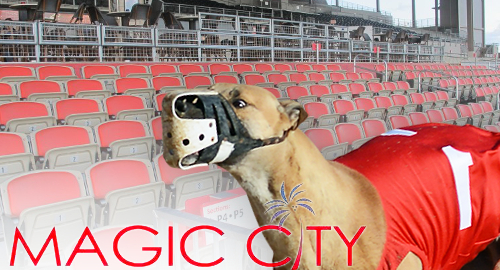 Florida has approved a Miami-area dog track’s ‘decoupling’ plan that will see it scrap racing activity while continuing to offer slots and card games.
Florida has approved a Miami-area dog track’s ‘decoupling’ plan that will see it scrap racing activity while continuing to offer slots and card games.
In 2011, the Magic City Casino applied for a so-called ‘summer jai alai’ permit, under a state law that allowed the two pari-mutuel operators in Miami-Dade and Broward counties with the lowest betting handle for two consecutive years to ditch the dogs in favor of jai alai operations (on which state residents are also allowed to legally wager).
State gaming regulators originally rejected the Magic City application, but an appeals court ordered them to rethink their decision. On Wednesday, the Department of Business and Professional Regulation approved Magic City’s request, provided the new jai alai fronton is built on the same property.
The decision marks the first time the state has permitted a track to ‘decouple’ from racing while maintaining its real bread-and-butter: slots and card games. Decoupling proposals have been a regular element of Florida’s annual failed efforts to rejig its gambling market, in part because the state pays millions more to regulate dog racing than the activity provides in tax revenue.
Unfortunately, the Magic City decision has little bearing on the state’s other pari-mutuel operators that are equally tired of maintaining the façade that anyone gives a damn about dog racing. The operators of the Mardi Gras Casino and Racetrack in Broward County had sought to intervene in the case but their petition was rejected.
Isadore Havenick, VP of the company that owns Magic City, put it bluntly to Orlando Weekly: “Nobody wants to watch [the dogs] … So this is a way for us to try a new sport and see if we can make a go of that.” And hey, jai alai “has to run fewer performances than dogs do,” making the equally unpopular sport a more cost-effective fig leaf for maintaining Magic City’s infinitely more valuable slots and card game operations.